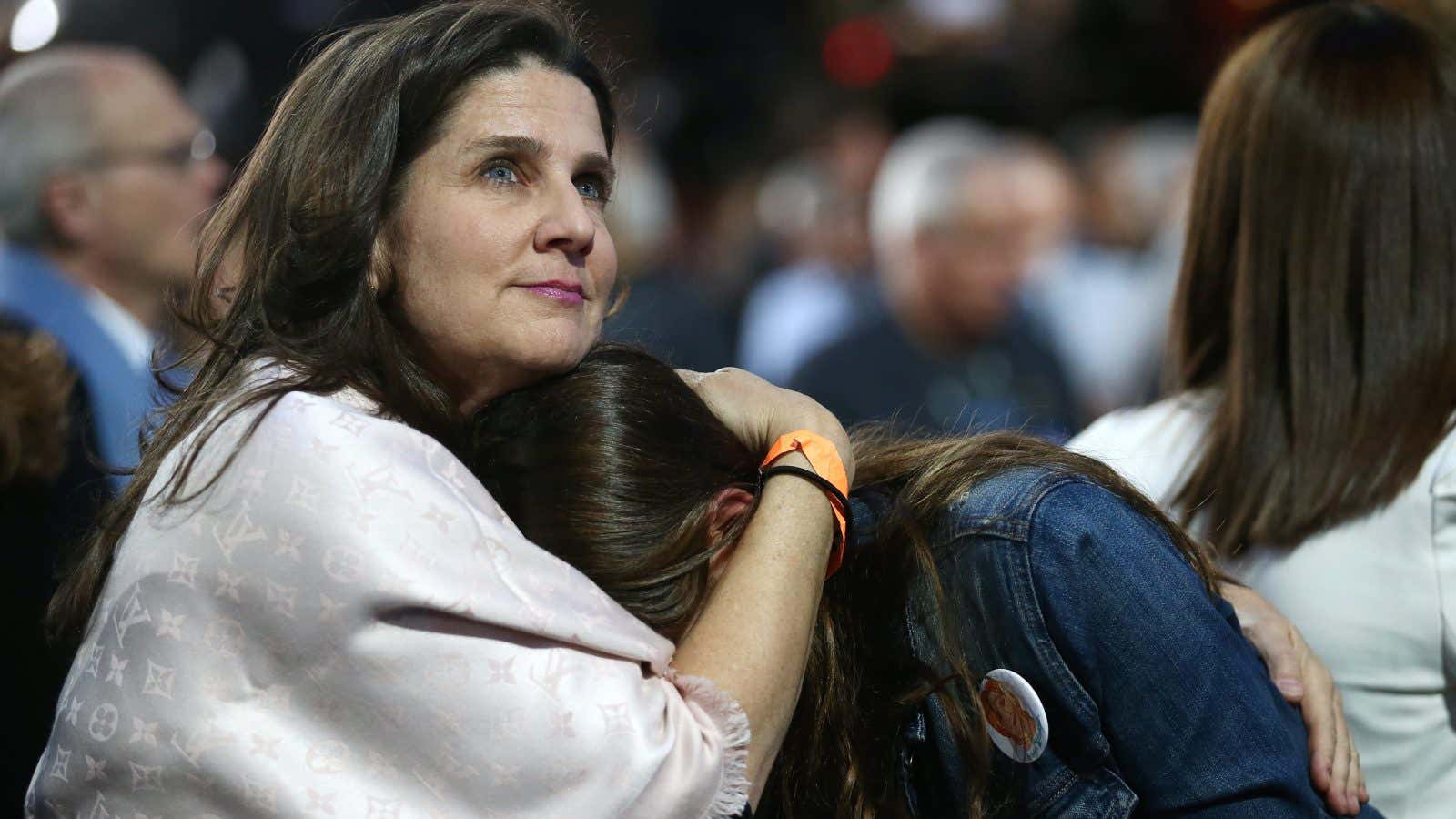London
The night the UK voted to leave the European Union, those of us Brits who opposed the idea started out watching with a sick mixture of hope and fear.
As results began to come in, there was the sinking sensation that something we wholeheartedly believed was wrong and damaging could come to pass. We asked ourselves: How could our fellow humans—people we live side-by-side with, people we respect—want this?
The night America elected Donald Trump as its 45th president felt like it had some parallels: a desperate hope that a country wouldn’t be swayed by fear, isolationism, and the rhetoric of “them against us.” The nagging terror that it would.
The next morning, these are some of the people who are looking at America’s choice, aghast: people who have experienced misogyny, racism, discrimination, harassment or bullying of any kind. People who have witnessed it. People who think one of the roles of government is to protect us from those things.
Compared to Brexit, this feels even worse.
The Brexit decision might be a turning point in the UK’s trajectory, angling it towards the right and away from unity both internal and external. But it could also be a blip in history. Right now, with negotiations likely to drag on for months or even years, and no clarity on what Brexit even means or would look like, it’s hard to say how much it will affect our lives. Our children’s lives.
Meanwhile, though UK leaders have expressed determination to take the UK decisively out of Europe and thus enact the “will of the people”—while the 48% that voted against Brexit are desperate to remind the world and the government that this can’t reasonably be done in their name—they aren’t demagogues. Theresa May, the UK prime minister, has a stance on immigration that is hardline for Britain, but it looks gently moderate compared to Trump’s.
Nigel Farage, who led the Brexit campaign as the head of the rightwing UK Independence Party, has never revealed himself as a violent misogynist. Any power he has as a populist figure is severely curtailed by the fact he holds no elected office.
Those who opposed Donald Trump will wake up with many, many questions. Some will be about the past: How did this happen?
Some will be about the future. How do those who believe in liberal values keep living them? How do we work towards real gender equality and women’s autonomy over their bodies? How do we work against discrimination based on race, sexuality, or gender identity? How do we continue to try and avert climate disaster?
What do we tell our daughters? What do we tell our sons?
It will be of small comfort but, four months after the UK referendum vote, if we learned one thing from Brexit it’s this: Life goes on. Even if it just got harder, and darker, and more confusing.
Good luck, America.
